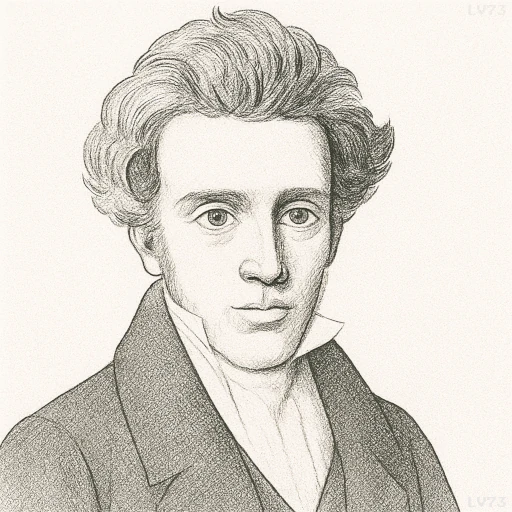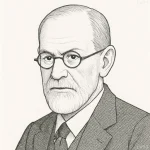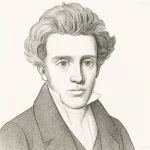“Anxiety is the dizziness of freedom.”

- May 5, 1813 – November 11, 1855
- Danish
- Philosopher, Theologian, Poet, Father of Existentialism
table of contents
Quote
“Anxiety is the dizziness of freedom.”
Explanation
This iconic quote captures Kierkegaard’s profound insight into the human condition as defined by freedom and the weight of choice. Anxiety, in his view, is not a flaw or purely negative emotion—it is the natural psychological response to the awareness of possibility. When we confront the reality that we are free to choose—who we become, what we value, how we act—we experience a kind of existential vertigo, a dizzying sense of both potential and responsibility.
Kierkegaard distinguishes this anxiety from fear. Fear is tied to something specific and external, but anxiety arises from within, from the recognition of one’s own freedom and the infinite possibilities that lie before us. In his 19th-century context, Kierkegaard was one of the first to explore this inward state philosophically, laying the groundwork for later existential thinkers. He believed that anxiety was not something to eliminate, but to understand and embrace as part of the journey toward authentic selfhood.
Today, this insight remains remarkably relevant. In a world of abundant choices, many feel overwhelmed by the pressure to craft the perfect life, make the right decisions, or define their identity. Kierkegaard teaches that this anxiety is not an enemy, but a sign of freedom. To feel anxious is to be alive to one’s possibilities. The challenge is not to escape it, but to move through it with courage, reflection, and faith, turning dizziness into direction.
Would you like to share your impressions or related stories about this quote in the comments section?


